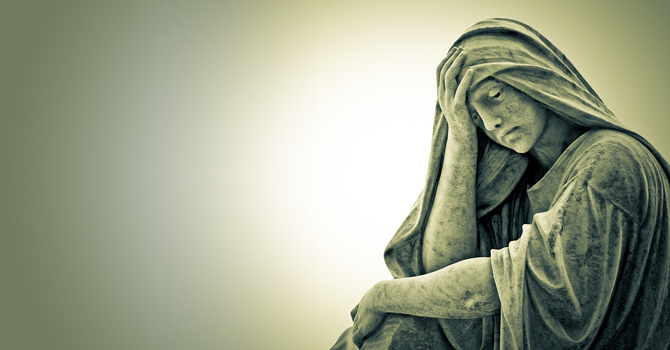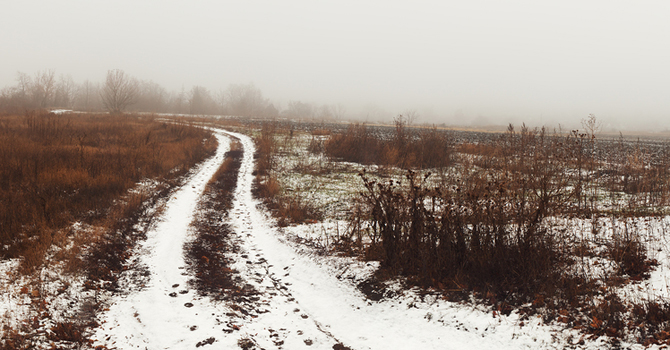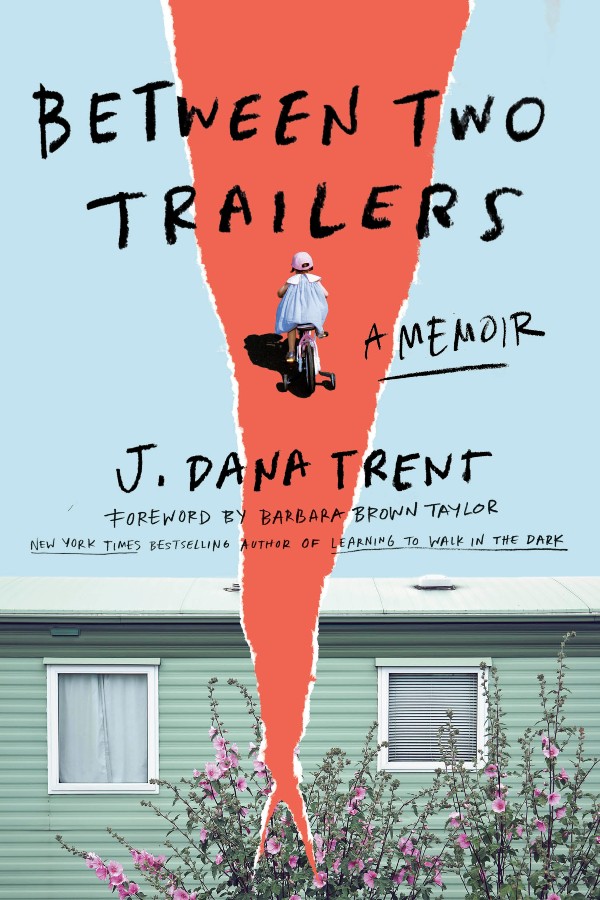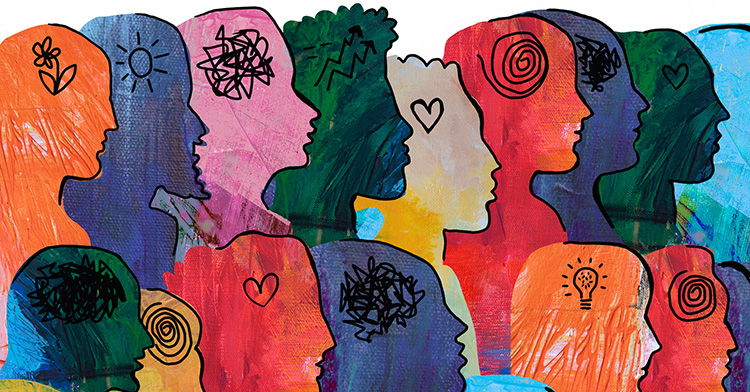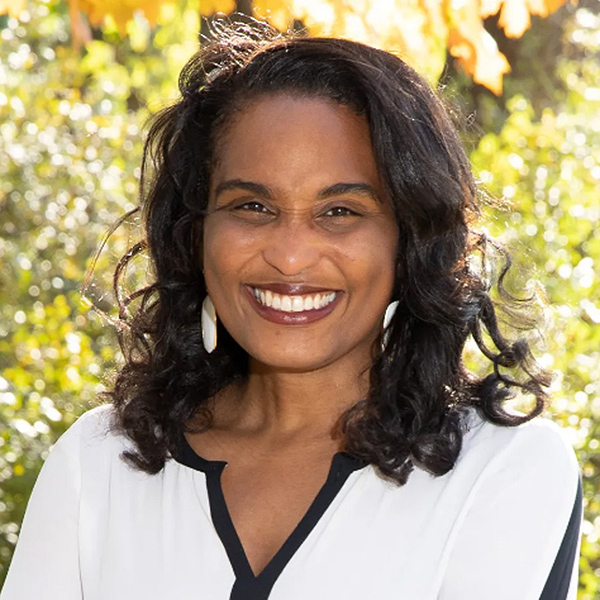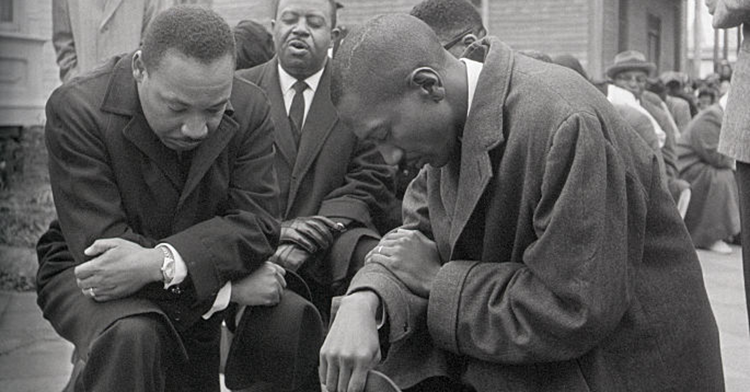Trigger warning: This essay mentions suicide and suicidal ideation.
Getting through the initial months of the pandemic was one thing. But now, as this winter of plague comes to an end, we’re all so weary. The isolation, the constant anxiety, the barrage of bad news -- it’s been brutal.
I’m writing this just a few weeks after finding out that a dear friend passed away. And just this morning, I heard the devastating news of a young man who died by suicide.
So many of us are at our breaking points. How does God expect us to endure such things?
As we fight against hopelessness, it’s vital to keep sharing our reasons for hope, to keep testifying to all the beauty and good we see.
But I think we might also need some space to talk about our despair. The poet Mary Oliver seems to recognize that need when she extends this gentle invitation in her poem “Wild Geese”: “Tell me about despair, yours, and I will tell you mine.”
So let me tell you a bit about mine.
There have been times in my life when I’ve been profoundly unwell, and several times when I’ve fallen completely apart. Times when my body has failed me and I couldn’t function because I wasn’t quite in my “right mind.”
I’ve been living with bipolar disorder since I was 15. During my sophomore year of high school, I was hospitalized for nearly two months and out of school for three.
That was all precipitated by some unwieldy manic episodes in which, for days at a time, I lost my appetite and need for sleep, flew sky high in states of euphoria and bursting confidence, talked a hundred miles an hour and behaved erratically in uncharacteristic ways.
And there were the annihilating depressive crashes in between.
For a while, I had to stop everything to deal with major mental illness, which had not been a part of my plans. The shock of it rattled me and, for years, made me feel that my life was doomed.
There were times when I was younger, during the worst depressive episodes, when it felt so excruciatingly painful to be in my body, so torturous to be conscious at all, that I begged God to just take my life.
When I had the energy to get angry, I railed at God for denying me relief and demanding so much of me -- because living seemed too much.
Depression completely rocked my faith. It dulled my spiritual senses and limited my capacity to hope. At times, I found it impossible to believe in a good and merciful God. And often, I wondered whether God existed at all.
Thankfully, our hope is not in our own steadfastness or our being rescued from hard things but in God, who stays with us in the midst of our pain.
Somehow, I survived those times that felt tormenting, those times I sunk into despair -- but just barely. It wasn’t pretty. Once in my early 20s, while stuck in deep depression, I shook my fist in exhausted rage and yelled, “What f***ed-up sort of ‘love’ is this!?”
I had no idea how to reconcile my suffering with the notion of God’s goodness or the possibility of God’s loving me.
I don’t know why some of us survive those depths and some don’t. I didn’t make it because I was strong or special. Medication helped keep me afloat. And help came when I needed it most. My family was there. My friends stuck with me, even when I was horrible company.
Eventually, my doctors and I hit upon more effective medication cocktails. Gradually, over the years, some tidbits and tools from therapy, insights from spiritual direction and encouragement from friends seeped in here and there to quiet some of the inner turmoil. What was most unbearable passed.
I’d be lying if I said that the days of anguish are completely behind me. They’ve gotten less frequent, but they still come -- and pandemic conditions certainly don’t help.
I’m still my intense, fragile, wounded self. That hasn’t changed.
What has changed is I no longer believe that God is far off -- or nonexistent -- just because the deeper realities are hidden from my sight. On most days, I no longer fear that God can’t stand me when I’m depressed.
We can go to God even when we can’t tidy ourselves up, even when we can’t pull ourselves together. Even those moments are part of the journey and not something we have to try to endure on our own.
If we can’t go to the Christ of all compassion when we’re in our most desperate moments, to whom shall we turn? What kind of savior would he be if he couldn’t handle us at our worst?
As if we could get away from God. As if God could ever be surprised by us at our worst.
I don’t know how God expects us to get through the challenges of this moment, but I trust that God is with us through it all. And what I know is that no one should have to fight through these desolations alone. We need to get through these storms together.
When our faith fails, we need others to remind us that mercy still undergirds it all. On days when the future looks too grim to bear, I need my friends to point out the glimmers of hope around me.
Perhaps the invitation now is to keep believing in God’s kindness, despite the look of things, and to embody that kindness as best we can for each other.
The tragedy isn’t in the fact that we sometimes come undone or that our faith crumbles. It’s in so many of us forcing ourselves to go it alone. The tragedy is in not being able to be our undone selves in community.
If it happens that the community we need isn’t there, we can still cling to hope. Even when we become too much for people to handle (and I’ve been there), God stays with us.
The terrifying truth we’re constantly being reminded of these days is that anything can happen to any of us. Faith doesn’t shield us from any of the ills and horrors of life on earth.
But no matter what happens, we can trust in Christ’s unending welcome. No matter what our stricken hearts might tell us, we can always rest in this truth: that nothing that can befall us -- no inner abyss, no outer circumstance -- will ever put us beyond the reach of God’s fierce love.
Are you or is someone you know struggling?
Here are some mental health resources:
- National Suicide Prevention Lifeline is a 24-hour service for anyone in suicidal crisis or emotional distress. 800-273-8255.
- National Alliance on Mental Illness (NAMI) offers local support groups and workshops across the U.S.
- BetterHelp offers affordable online therapy.




